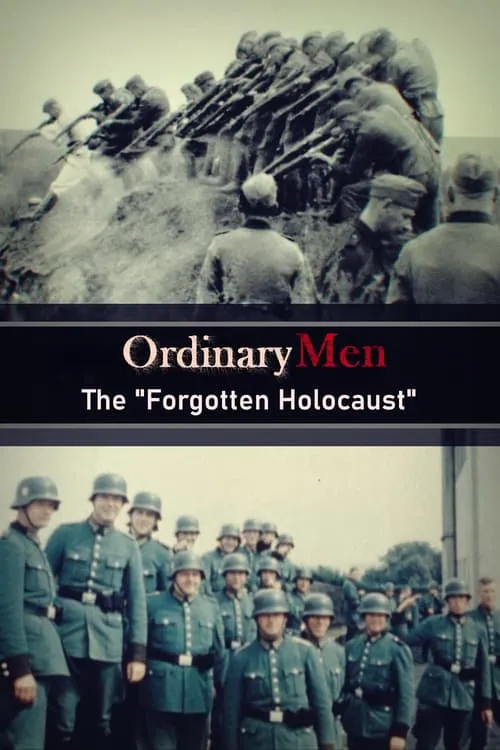Ordinary Men: The "Forgotten Holocaust"

Plot
"Ordinary Men: The 'Forgotten Holocaust'" is a haunting documentary series delving into the lesser-known atrocities committed by the Einsatzgruppen, a mobile killing unit consisting of regular German police officers and auxiliary forces responsible for the systematic massacre of Jewish communities, along with other perceived enemies of the Nazi regime. Released in the early 2000s, this somber and powerful documentary series provides a chilling portrayal of humanity's darker side, inviting reflection on the moral complexities that enabled ordinary men to surrender to such abhorrent deeds. The series focuses primarily on the atrocities committed in occupied Poland and the Baltic States. Following the German invasion of Poland in September 1939, the Einsatzgruppen were dispatched to carry out extermination operations behind enemy lines. Their mission was to execute, in cold blood, all Jews, Romani people, intellectuals, and activists deemed enemies of the Nazi regime, as well as the sick, the elderly, and those unable to contribute to the war effort. The scale of these atrocities is staggering, as evidenced by the testimonies of both victims and perpetrators, and documented historical records. The documentary series seeks to understand the psychological, social, and historical contexts that fueled the perpetrators' willingness to commit such crimes. By examining the personal testimonies of the perpetrators, including interviews with former members of the Einsatzgruppen, the filmmakers aim to unravel the psychological and sociological threads that bound individuals together in such an inhumane task. These accounts often reveal a complex tapestry of motivations, ranging from sheer obedience to a system, fear, ideological convictions, and even opportunism. The 'average Joe' persona, often associated with these perpetrators, is precisely what makes the atrocities so disquieting. These ordinary men were, by most accounts, uneducated and from humble backgrounds. Many were family men with wives and children, just like their victims. This portrayal serves to highlight the inherent cruelty of a system that demanded individuals, often under duress, become perpetrators of atrocities against innocent civilians, defying the very principles of humanity. One of the documentary's most striking aspects is the examination of the organizational framework that enabled such mass atrocities. By analyzing the chain of command, recruitment processes, and the social dynamics among the perpetrators, the filmmakers shed light on how ordinary people, often without clear ideological motivations, were co-opted into the machinery of genocide. Moreover, their accounts expose the ways in which Nazi ideology seeped into the everyday lives, shaping individuals' perceptions and behaviors to become complicit in such horrific crimes. In exploring the moral complexities of the perpetrators, the documentary also delves into the personal backstories and experiences of both victims and perpetrators. Testimonies from those forced to participate in the atrocities often reveal a deep-seated sense of guilt, remorse, and self-loathing, highlighting the profound psychological traumas inflicted upon these individuals by their involvement in such heinous acts. However, the series also delves into a more uncomfortable truth: many of these perpetrators returned to their civilian lives after the war, free from significant punishment, often without facing any lasting repercussions. The legacy of such acts thus raises profound questions about collective accountability, the power of societal norms to condone or tolerate such crimes, and the need for lasting moral reckoning. Throughout the documentary series, historical footage, photographs, and accounts from survivors and perpetrators work in unison to paint a grim portrait of human cruelty. As the narrative weaves together the experiences of individuals and communities torn apart by unimaginable horrors, a chilling realization emerges: that these atrocities are not merely the aberrations of an extreme ideology but the result of a complex interplay of psychological, social, and historical factors. The documentary series, 'Ordinary Men: The 'Forgotten Holocaust', serves as a stark reminder of the darkness that can unfold when ordinary men and women succumb to systemic brutality. In its unflinching portrayal of humanity's capacity for violence, compassion, and ultimately, the struggle for redemption, it stands as a testament to the enduring power of storytelling as a means to process the atrocities of the past, while providing a poignant warning for our collective future.
Reviews
Recommendations




